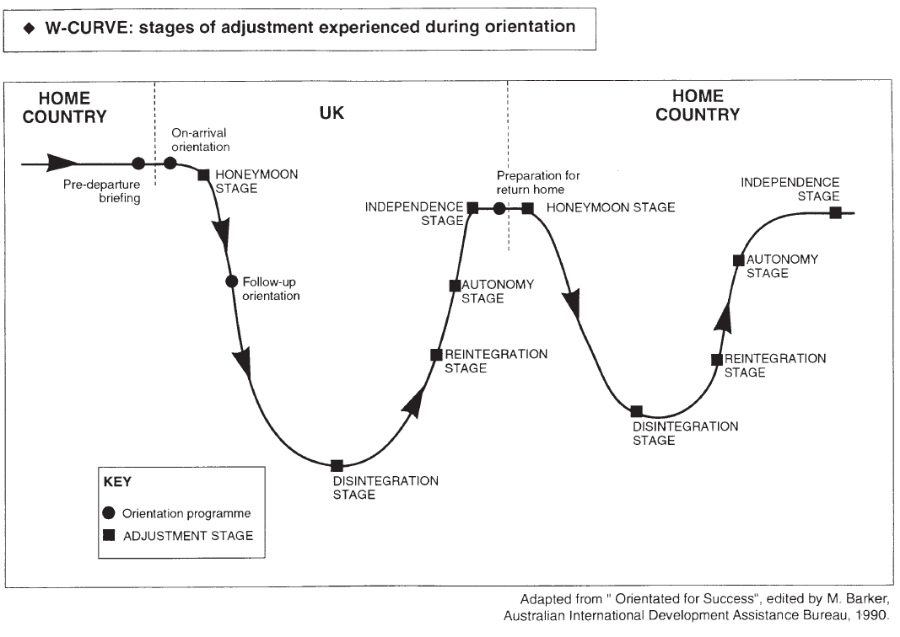The process of culture shock can be illustrated by a model known as the “W” curve. This may not relate entirely to your experience. Sometimes the process is faster or slower but it can be useful to see the different stages that fellow students may be experiencing.
Many people go through different phases of the process of adjustment several times, so parts of the curve in the diagram may repeat themselves. For instance, at significant times such as important family dates or festivals you may feel distressed or lonely, while at other times you feel quite settled. However, many people have reported that this model has reflected something of their experience and they have found it helpful to realise they are not the only ones to have had these feelings. The process can be broken down into five stages:
1. Honeymoon
When you first arrive in a new culture, differences are intriguing and you may feel excited, stimulated and curious. At this stage you are still protected by the close memory of your home culture.
2. Distress
A little later, differences in the culture may make you feel confused, isolated or inadequate as cultural differences intrude and familiar supports (eg family or friends) are not immediately available.
3. Reintegration
Next you may reject the differences you encounter. You may feel angry or frustrated, or hostile to the new culture. At this stage you may be conscious mainly of how much you dislike it compared to home. Don’t worry, as this is quite a healthy reaction. You are reconnecting with what you value about yourself and your own culture.
4. Autonomy
Differences and similarities are accepted. You may feel relaxed and more confident as you become more familiar with situations and feel able to cope with new situations based on your growing experience.
5. Independence
Differences and similarities are valued and important. You may feel full of potential and able to trust yourself in all kinds of situations. Most situations become enjoyable and you are able to make choices according to your preferences and values.
Adapted from Orientated for Success, edited by M Barker, Australian International Development Assistance Bureau, 1990.

